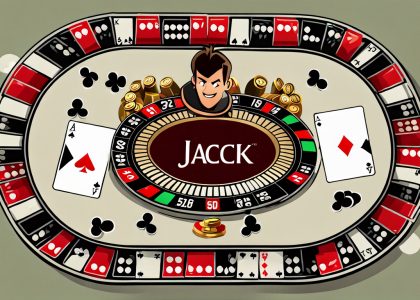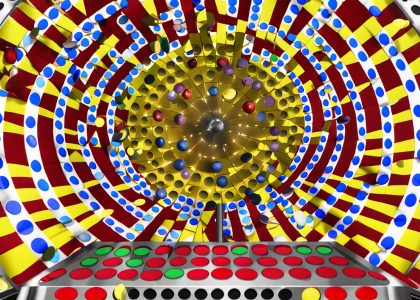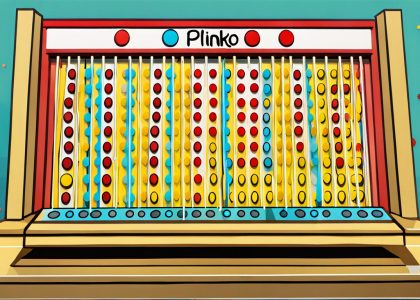Spanish 21 is a popular variation of blackjack that adds a unique twist to the classic game. First introduced in the 1990s, Spanish 21 has grown in popularity due to its favorable rules and exciting gameplay. Despite its similarities to traditional blackjack, Spanish 21 offers distinct differences that set it apart, giving players new strategies and opportunities to win.
Spanish 21 History
Spanish 21 is a popular variation of blackjack that originated in the 1990s, designed to offer players more favorable rules and exciting gameplay compared to traditional blackjack. It was first introduced by the gaming company Masque Publishing, and quickly gained popularity in casinos across the United States, particularly in Las Vegas and Atlantic City.
Spanish 21 was created by Masquerade Gaming, a company based in California, in the early 1990s. The game was introduced as an alternative to traditional blackjack, offering unique rules and features that enhance player engagement and provide more opportunities for winning. Spanish 21 quickly gained popularity in casinos, particularly in the United States, and has since become a favorite among blackjack enthusiasts due to its exciting gameplay and favorable odds for players.
The name “Spanish 21” comes from the use of a special deck called the “Spanish deck,” which omits all four 10 cards, leaving only 48 cards instead of the standard 52. Despite this, the game compensates players with a variety of player-friendly rules, such as allowing late surrenders, doubling down after splitting, and offering bonus payouts for certain hands. For instance, a player’s blackjack always beats a dealer’s blackjack, and players can win special payouts for getting 21 with five or more cards.
Spanish 21’s appeal lies in the dynamic strategies it introduces. By removing the 10s from the deck and introducing these favorable rules, the game provides a unique challenge and higher payout opportunities, making it an exciting choice for both casual and experienced blackjack players.
How to play Spanish 21 ?

Spanish 21 is a variation of blackjack with several unique rules that make the game more exciting and player-friendly. Here’s a step-by-step guide on how to play Spanish 21:
1. Objective
The goal in Spanish 21 is the same as in traditional blackjack: to get a hand total as close to 21 as possible without going over. Players compete against the dealer, aiming to have a higher hand than the dealer, or to reach 21 exactly.
2. The Deck
Spanish 21 uses a Spanish deck, which has 48 cards because all four 10s are removed. The remaining cards are the 2s through 9s, face cards (Jack, Queen, King), and Aces. Despite the absence of 10s, the game balances this with other favorable rules.
3. Card Values
- Number cards (2-9) are worth their face value.
- Face cards (Jack, Queen, King) are worth 10 points each.
- Aces can be worth either 1 or 11, depending on what benefits the player.
4. Placing Bets
At the start of the game, players place their bets in the betting circle before the cards are dealt. Once all bets are placed, each player and the dealer receive two cards. Players’ cards are dealt face-up, while one of the dealer’s cards is face-up (the “upcard”) and the other is face-down (the “hole card”).
5. Gameplay Options
After receiving their two cards, players can make several choices depending on their hand and the dealer’s upcard:
- Hit: Take another card to improve your hand.
- Stand: Keep your current hand and end your turn.
- Double Down: Double your initial bet and receive one additional card. Spanish 21 allows doubling down after splitting and on any number of cards.
- Split: If you have two cards of the same value, you can split them into two separate hands, placing an additional bet equal to the original wager.
- Surrender: Spanish 21 allows late surrender, meaning you can forfeit half your bet after the dealer checks for blackjack.
6. Special Rules
Spanish 21 introduces several unique player-friendly rules that distinguish it from traditional blackjack:
- Player Blackjack Always Wins: If both the player and dealer get blackjack (an Ace and a 10-value card), the player automatically wins.
- Bonuses for 21: If you get 21 using five or more cards, you receive a bonus payout. Special payouts are also offered for 21 with six or seven cards or for making 21 with a 6-7-8 or 7-7-7.
- Double Down Rescue: After doubling down, if you feel your hand won’t win, you can surrender and recover half of your double bet.
7. Dealer Rules
- The dealer stands on all 17s (including soft 17s).
- The dealer must check for blackjack if their upcard is an Ace or a 10-value card.
8. Winning and Payouts
- Winning a Regular Hand: If your hand beats the dealer’s without exceeding 21, you win. Standard payout for winning hands is 1:1.
- Blackjack Payout: Player blackjack pays 3:2 unless you have a bonus hand, which pays more.
- Bonus Payouts for 21: You receive special payouts if you make 21 with specific card combinations or with a certain number of cards, such as:
- Five-card 21: Pays 3:2.
- Six-card 21: Pays 2:1.
- Seven-card 21: Pays 3:1.
- 6-7-8 (of mixed suits): Pays 3:2.
- 6-7-8 (of the same suit): Pays 2:1.
- 6-7-8 (all spades): Pays 3:1.
- 7-7-7 (mixed suits): Pays 3:2.
- 7-7-7 (same suit): Pays 2:1.
- 7-7-7 (all spades): Pays 3:1.
If the dealer is showing a 7 as an upcard and you get 7-7-7, some casinos offer a super bonus payout that could go as high as $1,000!
9. Payout for Insurance
If the dealer’s upcard is an Ace, players can place an insurance bet, which protects against a possible dealer blackjack. The insurance bet pays 2:1 if the dealer has blackjack.
Strategies in Spanish 21
Due to its rule differences, Spanish 21 requires a slightly adjusted strategy compared to traditional blackjack. For example, since the 10s are removed from the deck, players should be more conservative in certain situations, such as doubling down. Additionally, the ability to double down on multiple cards, surrender late, and the potential for bonus payouts encourages more aggressive play when certain conditions are met.
Key Tips:
- Always take advantage of the favorable rules, such as the ability to double down after splitting and the late surrender option.
- Pay attention to the number of cards in your hand when going for 21 to maximize bonus payouts.
Spanish 21 provides exciting gameplay with its player-friendly rules and potential for special payouts, making it an appealing option for blackjack enthusiasts looking for something different!
Key Differences Between Spanish 21 and Blackjack

- The Decks One of the most significant differences in Spanish 21 is the deck composition. The game is played with six or eight decks of cards, but all 10s are removed. This creates a 48-card deck instead of the usual 52-card deck used in traditional blackjack. While the removal of 10s increases the house edge slightly, other player-friendly rules help balance this out.
- Player-Friendly Rules Spanish 21 offers several rule variations that benefit players:
- Player’s 21 always wins: In Spanish 21, if a player hits a total of 21, they automatically win, even if the dealer also has 21. In standard blackjack, a 21 from both the player and dealer would result in a push (tie).
- Player Blackjack always wins: A player’s natural blackjack (Ace and a 10-value card) beats the dealer’s blackjack, which is not the case in standard blackjack.
- Late Surrender: Players can choose to surrender their hand after the dealer checks for blackjack. By surrendering, players forfeit half of their bet, but this option provides a chance to minimize losses in unfavorable situations.
- Double down at any time: Players can double down on any number of cards, not just after their initial two-card hand, allowing more strategic flexibility.
- Re-doubling: Players can re-double after a double down, up to three times.
- Bonus payouts for 21: Players can earn bonus payouts for making 21 with five or more cards (the “5-card Charlie”). The bonus increases with the number of cards used to make 21.
- Bonus Payouts Spanish 21 introduces a range of exciting bonus payouts, which add to the appeal of the game. Some notable bonuses include:
- A five-card 21 pays 3:2.
- A six-card 21 pays 2:1.
- A seven-card 21 pays 3:1.
- A player who holds a 6-7-8 or a 7-7-7 of mixed suits pays 3:2. If the combination is suited, it pays 2:1, and if the suited combination is spades, it pays 3:1.
There’s also a significant bonus for a player who gets three 7s when the dealer shows a 7. Depending on the casino, this can result in a substantial bonus payout, especially if the player is betting a larger amount.
Online Casino
You can play Spanish 21 online at various reputable online casinos that offer a wide range of table games, including this popular variation of blackjack.





















